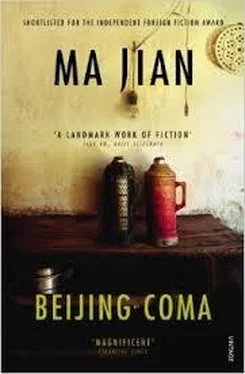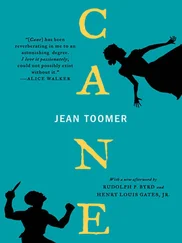My father started his journal in 1979, while he was in the camp in Shandong Province. Mao Zedong was dead by then. I doubt that he would have had the courage to keep a journal while the Chairman was alive. Sometimes the entries were just a few sentences long, such as: ‘Early November. Heavy snow. Chen Cun’s been moved to another camp.’ Or: ‘We’ve discovered that you can make a porridge out of wild speargrass seeds. But you can’t eat it while it’s still hot, or your stomach will explode. That’s how Wang Yang died.’
After his release, he became more courageous and began to write about his experiences in greater detail. One passage went: ‘During the “airing of views” meeting at the opera company that day, someone mentioned the photograph that showed me shaking hands with the American guest conductor after our orchestra’s performance of Beethoven’s Eroica Symphony in the Beijing Hall of Music. He said that I’d humiliated the Chinese people by trying to ingratiate myself with American imperialist forces. I explained that, in foreign countries, it’s customary for the principal violinist to shake hands with the conductor after a concert, and that besides, it was the American conductor who offered to shake my hand, not the other way round. The photograph had hung in the main meeting room for three years, as an example of a successful cultural exchange between China and the West. Everyone in the company had seen it. Our Party secretary accused me of gazing up at the conductor like a lapdog. I explained that the conductor was standing on a podium, so I had no choice but to look up at him…’ If one searched through the newspapers of 1954, I’m sure one could find a print of this photograph that changed my father’s life.
What used to annoy me most about my father was the way he ate. He didn’t let one grain of rice slip his attention. If a scrap of food dropped onto the table, he’d scoop it up at once and toss it into his mouth. After every meal, he’d furtively sweep discarded bones and fruit peel into his lunch box. A few hours later he’d take the box into a corner of the room and quietly chew on the contents. My mother would try to hunt out his secret stashes, but never managed to find them all, so there was always a smell of mould and decay in the flat. But after I read the following passage of his journal, I forgave him his eccentric behaviour: ‘… There were some dried shreds of sweet potato and pumpkin pulp lying outside the pigpen today. As soon as we spotted them, we pounced on them and stuffed as much as we could into our mouths. The guard on duty was a young man. Nicer than most. At least he didn’t beat us. He just sneered and said, “That’s disgusting! And you call yourselves intellectuals…”’
I knew I couldn’t tell my mother what I’d read. If she’d known that her husband had been reduced to living like a dog, it would have made a mockery of her efforts to join the Party.
A page of my father’s journal was devoted to a fellow rightist called Zhang Bo. ‘… When I refused to beat up my friend Zhang Bo, the officers handcuffed my hands behind my back. They didn’t take the cuffs off for a month. At mealtimes, I had to lick my rice porridge off a sheet of newspaper, like a dog. I couldn’t lie down to sleep. I couldn’t even wipe the shit from my arse. I wasn’t a security guard. How could they ask me to attack my own friend?… Everyone knew that Zhang Bo was short-sighted. When he scribbled “Mao Zedong” on his matchbox he couldn’t have seen the words “Bring Down Liu Shaoqi” printed on the other side. He was daydreaming at the time. It was an innocent doodle. The camp leaders accused him of urging the Chinese people to “Bring Down Mao Zedong”. How ridiculous!… Even if it had been deliberate, it was a minor mistake. He certainly didn’t deserve to be executed for it.’
My father listed the objects that Zhang Bo left behind: ‘One pair of leather shoes; one checked woollen scarf; one fruit peeler, handle missing. His closest relative is called Cai Li. Address: Bureau of Cultural Affairs, Hongqiao District, Shanghai.’
My father had suffered a lot for refusing to beat up this man. He was clearly less of a coward than I’d assumed him to be.
I didn’t dare mention my father’s journal to A-Mei, either. The only person with whom I discussed it was Mou Sen. He said that the suffering our parents endured would cause our generation to question the autocratic system we lived under.
An impulse spreads through your damp heart, then moves up the nerve fibres of the brain stem to the central nucleus of the thalamus. A-Mei flows through your mind like a slow and beautiful lament.
A-Mei and I boarded a train to Guangxi Province. It was the first time we’d taken a train together, and the first time I’d travelled with a girl.
Southern University had broken up for the summer, and I’d decided to go to the neighbouring province of Guangxi to visit the Overseas Chinese Farm where my father was sent in 1963. When the Vietnam War broke out in 1965, the area was in the direct line of attack. The authorities were afraid that the rightists incarcerated in the farm might take advantage of the chaos to escape across the border, so they moved them to my father’s native province of Shandong.
A-Mei wanted to visit her aunt in nearby Liuzhou, and I hoped to make a side trip to Guilin to visit Director Liu, who had been so kind to my father, and his daughter Liu Ping. In my mind’s eye, Liu Ping had taken on the features of an angel, with her hair in bunches, her small, delicate ears, and her arms stretched out like wings. Besides, Guilin, with its green peaks and winding rivers, was a famous beauty spot, and I thought A-Mei would enjoy the trip.
A-Mei and I weren’t officially a couple, but I’d taken her out for a meal at the small restaurant outside the campus gates. I’d ordered pigs’ trotters braised in peanut sauce, which was a local speciality I hadn’t tasted before. It was delicious. I’d also taken her swimming at the Guangzhou sports centre, and had held her hand while crossing the road.
After her first trip back to Hong Kong, she brought me a carton of Marlboro cigarettes. She said that everyone else was buying them in the duty-free shop, and she didn’t want to miss out on a bargain. But I knew that she was just trying to help me make some money, because you could sell those cigarettes outside Guangzhou train station for fifteen yuan a pack, which was enough to buy me lunch for a week.
Whenever she went to Hong Kong after that, she’d bring me a couple of cartons. After her third trip, she gave me a cassette of Beethoven’s Violin Concerto conducted by Karajan. Unfortunately I didn’t own a cassette player. So many people borrowed it from me that, after a week, the tape snapped.
I suppose we were in what’s called ‘the early stages of courtship’.
The train carriage was packed full. We sat on the wooden bench, squashed up against the metal door. At each station we were bashed by the luggage of the passengers who squeezed in. When the men sitting opposite us tore the legs off their deep-fried chickens and opened bottles of beer with their teeth, grease and alcohol splashed onto A-Mei’s sandals. She tucked her feet away under the bench and turned her face to the window. After a long and sleepless night, we finally made it to Liuzhou Town.
As soon as we arrived, we decided to set off for Fish Peak Hill. From a distance the hill looked more like a penis than a fish.
I took a picture of A-Mei with her instamatic camera. Through the viewfinder, I was able to stare straight into her eyes. I moved around her, trying to find the best shot, but she looked beautiful from every angle. When I held the camera still, she gazed back at me through the lens, raising her eyebrows to widen her eyes.
Читать дальше












